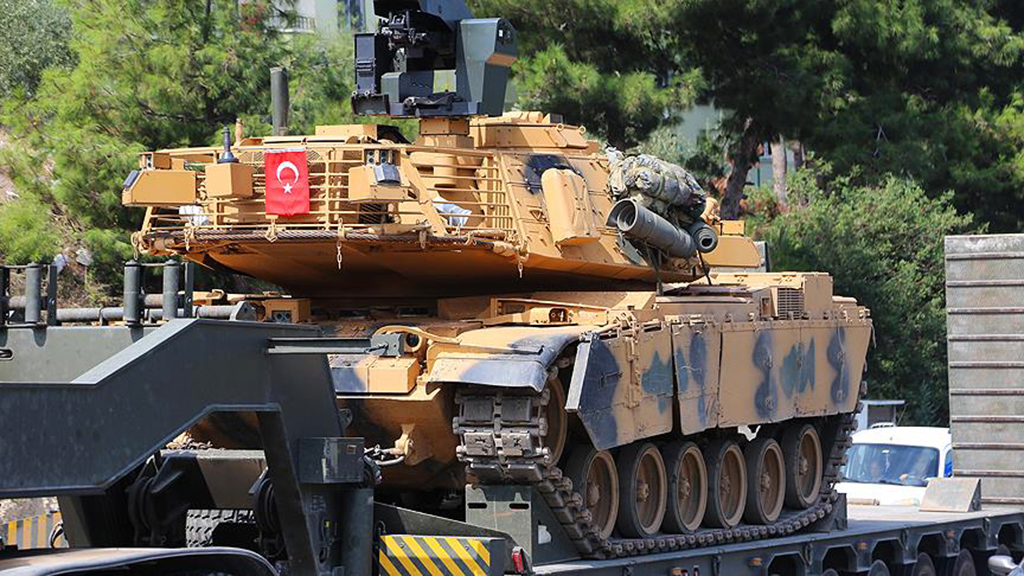In the wake of U.S. President Donald Trump’s decision to withdraw from Syria, there has been a lot of movement in the areas to the east and west of the Euphrates River. In Manbij and Hasakah, bomb attacks targeted American troops.
The motive of those assaults was clear: to encourage the U.S. public to pressure Trump into reversing his decision to pull out of Syria, to stop an imminent agreement between Turkey and the United States on the proposed safe zone in northern Syria, and, by extension, to remind the Americans that the People’s Protection Units (YPG) was part of the fight against Daesh. That President Recep Tayyip Erdoğan, in his most recent phone call with Trump, reiterated his commitment to immediately take charge of security in Manbij was significant. As a matter of fact, Erdoğan showed Trump what the bombers hoped to accomplish and reassured his counterpart that Turkey was determined to play an active role against the backdrop of the American withdrawal.
It would appear that the two leaders have managed to overcome the lack of trust between Ankara and Washington that had been building up since 2013. With Obama leftovers like Brett McGurk out of the way, bilateral relations could bounce back rapidly. That James Jeffrey, who is familiar with Turkish public opinion, serves as Trump’s special representative for Syria and the counter-Daesh campaign is a huge advantage. Jeffrey will presumably play a more prominent role in negotiations in light of National Security Adviser John Bolton’s controversial trip to the Turkish capital. It was a welcome development that Sen. Lindsey Graham told reporters that he was going to urge Trump to reverse the nightmare that the Obama administration unleashed on Turkey. Meanwhile, McGurk is still trying to fuel tensions between Turkey and the United States. Recently, he claimed that Trump had no concrete plan to leave Syria and described the move to hand over YPG-controlled areas to the Turks as unrealistic and unimplementable. McGurk embodies the view of supporting YPG terrorists in the name of fighting Daesh and treating Turkey as an unreliable ally. There are others like him in various government agencies in Washington. Ironically, those Obama leftovers are the driving force behind rampant anti-Americanism in Turkey. Trump’s decision to withdraw from Syria, by contrast, facilitates Turkish cooperation with an administration that respects its national security concerns. In order for Trump’s to put to work his plan to cooperate with Turkey, however, McGurk’s approach must be abandoned for good.
There is no reason to believe that the McGurks and bomb attacks will change Trump’s mind about bringing U.S. troops home. Yet they could make bilateral talks on the proposed safe zone more difficult. For Turkey, anything that resembles Poised Hammer and the Northern Iraqi experience is not the right way forward. Washington must know better than to introduce complex and unworkable plans to protect the YPG militants, who represent a serious problem for the Turks. A 20-mile safe zone under Turkish control is the way to go. As Sen. Graham pointed out, the U.S. must act to correct the Obama administration’s mistakes. Washington must make an offer to the Turks that will strengthen their hand in talks with Russia. To revive America’s strategic partnership with Turkey, addressing the YPG problem is critically important. It also happens to be the only way to counterbalance the growing Russian influence over the Middle East.
[Daily Sabah, 25 January 2019]
In this article
- Opinion
- Anti-Americanism
- CENTCOM
- DAESH
- Daily Sabah
- Donald Trump
- East of the Euphrates
- Fight against DAESH
- Fight Against Terror
- Iraq
- James Jeffrey
- Kurdistan Workers' Party Terrorist Organization (PKK)
- Middle East
- NATO
- NATO Ally
- Northern Iraq
- Obama Administration
- Operation Euphrates Shield
- Peace Corridor
- People's Protection Units (YPG)
- PKK - YPG - SDF - PYD - YPJ - SDG - HBDH - HPG - KCK - PJAK - TAK - YBŞ
- Recep Tayyip Erdoğan
- Russia
- Safe Zone
- Syria
- Syrian Civil War
- Syrian Conflict
- Syrian Crisis
- Syrian Democratic Forces (SDF)
- Syrian National Army (SNA)
- Syrian National Coalition
- Syrian Opposition
- Syrian Refugees
- Terrorism
- Trump’s Syria Withdrawal
- Turkish Foreign Policy
- Turkish-American Relations
- Türkiye
- Türkiye-US Relations
- Türkiye-US Security Relations
- Türkiye's Foreign Policy
- Türkiye's Operation Peace Spring
- Türkiye’s Operation Olive Branch
- United States (US)
- US President
- US Withdrawal from Syria
- US-PKK/PYD/YPG/SDF Relations
- US-Terror Relations
- Vladimir Putin

